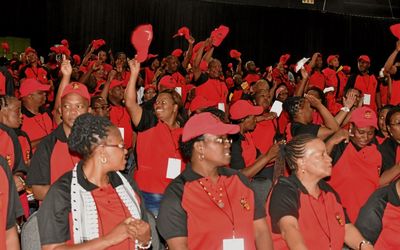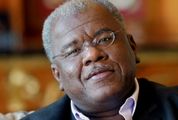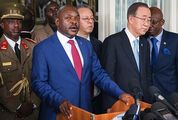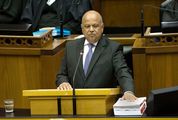A FREE Market Foundation (FMF) legal battle over the constitutionality of provisions within collective bargaining got under way on Monday, with the opening arguments in the Pretoria High Court centring on to what degree bargaining councils can or should be held accountable to public interest.
Just less than three years after announcing its battle against provisions of the Labour Relations Act, the court has set aside four days of arguments between the foundation and dozens of respondents to its challenge this week.
The move pits it against the Congress of South African Trade Unions (Cosatu), which sees the challenge as an attack on organised labour, the Department of Labour, 23 bargaining councils, and the South African Clothing and Textiles Workers’ Union (Sactwu).
The challenge is to section 32 of the Labour Relations Act, which allows collective agreements reached in bargaining councils to be extended to employers in the same sector who are not party to the negotiations.
The Free Market Foundation wants the wording of the act changed to ensure that the labour minister "may" extend agreements struck in councils, as opposed to "must" as is currently legislated. The foundation maintains that the current system enables collusion between large business and labour, to the detriment of smaller companies, potential new entrants and the unemployed.
Martin Brassey SC, for the Free Market Foundation, argued on Monday that the case was premised on whether bargaining councils, as private actors, were able to consider public interest.
The foundation, in its responding heads of argument, maintains that the current act "locates a coercive legislative power in private actors — bargaining councils — who are not required to act in the public interest and, consistent with the imperatives of collective bargaining".
Wim Trengrove SC, for Cosatu, put to the court on Monday that there was no constitutional provision that mandated that public power, when vested in a private actor for certain interest, was not always required to be exercised in the public interest.
"Public power must be exercised for the purpose of which the power is conferred by the legislation," he said.
The case continues.

Cosatu. Picture: FREDDY MAVUNDA
A FREE Market Foundation (FMF) legal battle over the constitutionality of provisions within collective bargaining got under way on Monday, with the opening arguments in the Pretoria High Court centring on to what degree bargaining councils can or should be held accountable to public interest.
Just less than three years after announcing its battle against provisions of the Labour Relations Act, the court has set aside four days of arguments between the foundation and dozens of respondents to its challenge this week.
The move pits it against the Congress of South African Trade Unions (Cosatu), which sees the challenge as an attack on organised labour, the Department of Labour, 23 bargaining councils, and the South African Clothing and Textiles Workers’ Union (Sactwu).
The challenge is to section 32 of the Labour Relations Act, which allows collective agreements reached in bargaining councils to be extended to employers in the same sector who are not party to the negotiations.
The Free Market Foundation wants the wording of the act changed to ensure that the labour minister "may" extend agreements struck in councils, as opposed to "must" as is currently legislated. The foundation maintains that the current system enables collusion between large business and labour, to the detriment of smaller companies, potential new entrants and the unemployed.
Martin Brassey SC, for the Free Market Foundation, argued on Monday that the case was premised on whether bargaining councils, as private actors, were able to consider public interest.
The foundation, in its responding heads of argument, maintains that the current act "locates a coercive legislative power in private actors — bargaining councils — who are not required to act in the public interest and, consistent with the imperatives of collective bargaining".
Wim Trengrove SC, for Cosatu, put to the court on Monday that there was no constitutional provision that mandated that public power, when vested in a private actor for certain interest, was not always required to be exercised in the public interest.
"Public power must be exercised for the purpose of which the power is conferred by the legislation," he said.
The case continues.






















Data supplied by Profile Data
Data supplied by Profile Data
Change: 2.45%
Change: 2.03%
Change: 2.33%
Change: 2.95%
Change: 2.13%
Data supplied by Profile Data
Change: 1.39%
Change: 0.96%
Change: 1.24%
Change: -0.60%
Change: -1.39%
Data supplied by Profile Data